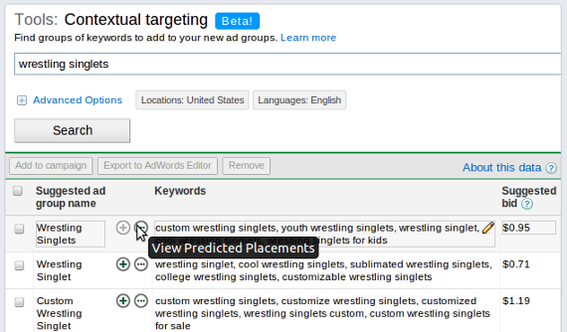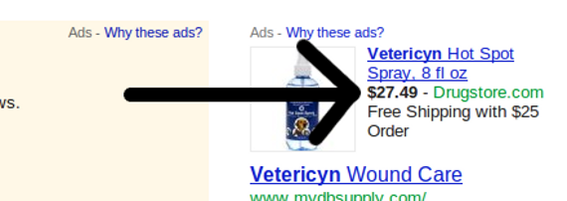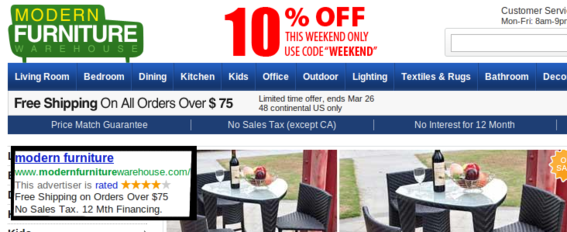Pay-per-click advertising is a staple of ecommerce marketing that can play a key role in increasing site traffic and sales when managed well.
Pay-per-click advertising can also be very expensive and labor intensive as marketers seek to find the best combination of ad copy, audience, keywords, and bids. Even the most seasoned PPC buyers seek new and better ways to convert. What follows are three ways to get more from PPC.
1. Get Better Information
Thanks to tools from PPC vendors, like Google, and the availability of great web analytics data, the PPC marketer has many ways to get good information about how well ads are performing and, thereby, make decisions that can lead to better click-through and conversion rates.
Try Google’s new contextual targeting tool, which is in beta at the time of writing. Navigate to “Tools and Analysis” in the AdWords’ administration panel and select “Contextual targeting” from the drop down menu. The tool allows marketers to enter a query and find contextual matches. The tool also provides bid suggestions and a prediction of where in the search engine giant’s advertising network PPC ads would be likely to appear.
The contextual targeting tool can help identify query phrases that will provide a better return on investment.
Similarly, Google AdWords’ Placement Tools — also in the Tools and Analysis section — makes suggestions about where in the Google ad network PPC ads can be placed. Finding effective sites outside of Google search engine results pages can be a good way to boost ROI. Excluding site that don’t make sense is also a way to improve.
A third Google tool, “Ad Preview and Diagnosis,” lets marketers preview ads in the context of a search engine results page, providing a snapshot of the competition as well as the ad’s appearance.
The ad preview tool from Google can provide hints to why an ad is or is not performing. Enlarge This Image
Enlarge This Image
2. Set Better Expectations
Pay-per-click ads need to set realistic expectations so that when a user clicks there are no surprises. One popular tactic is to actually include a price in the PPC ad. This way shoppers know how much the product costs, and will presumably click only when they have genuine interest.
Prices in PPC ads can boost conversion rates, since they prevent some “window shopping” clicks.
There should also be a one-to-one relationship between the PPC ad copy and the landing page that ad promotes.
This PPC ad’s copy is echoed on the landing page.
3. Change Fearlessly
Any number of outside forces — such as overall trends, changes to Google’s algorithms, or even the time of the year — can impact a PPC campaign’s success. So marketers need to be willing to make changes fearlessly.
If a campaign that had been performing well, enters a slump, gather the information necessary to make a good decision, and be willing to make any changes necessary. If a favorite ad that generates lots of traffic is not making enough conversions to break even, cut it and move on.
Being willing to make rapid changes as new and better information becomes available is a good way to get more from PPC.
In Conclusion
Gathering better information, setting proper expectations with ad copy, and being willing to change any part of a PPC campaign are all ways to potentially improve click-through and conversion rates. But remember there is no magic elixir and some techniques will work better for one advertiser than another. So be sure to keep looking for good PPC resources, such as “5 Tips for Increasing Pay-Per-Click Conversion Rates” and “How to Optimize a Pay-per-click Landing Page,” two previous articles on that topic.




